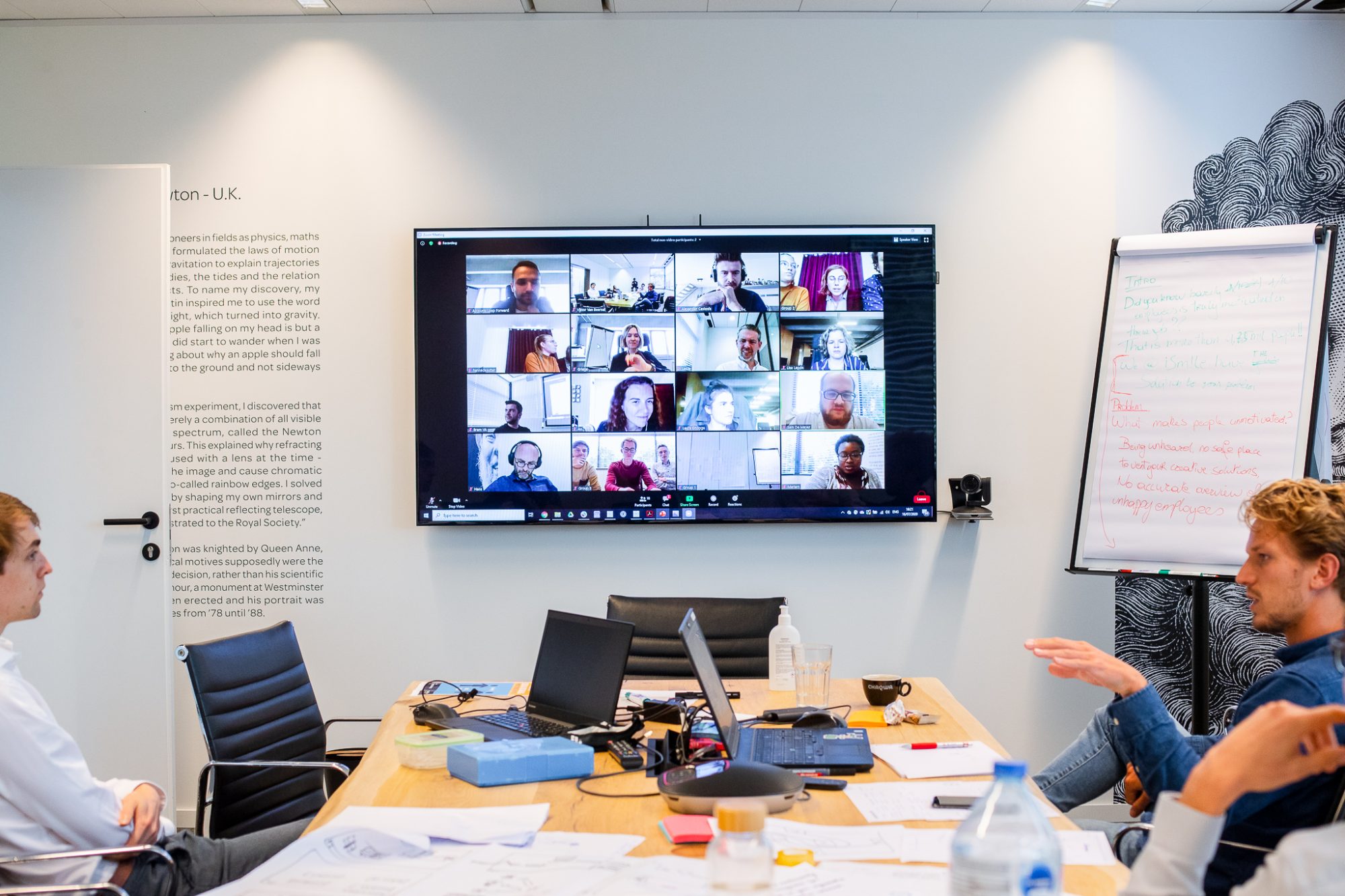Organizing talent management in the remote age
on 20 January 2021 for CompaniesThe workplace has definitely changed. Where it took many companies several years to explore the options of remote work, the corona crisis has forced every organization to rethink the way they work. Almost overnight, homeworking has become the new standard. But what does it mean for your talent management strategy? And how can you successfully implement that strategy for remote teams?
Remote work, including work from home (WFH) and work from anywhere (WFA), is not new in HR management. Not only the idea, but also the technology to make it happen, exists already for more than a decade.
How corona influenced talent management
Yet it took a worldwide pandemic for the concept of remote work to break through on a large scale. In an extremely short period of time our workplace and the way we work together have drastically changed. Who knows, maybe forever. For employees with the skills and desire to work remotely, the crisis has risen as an opportunity to enjoy flexible work and a better work-life balance.

Although this migration went reasonably well, considering the given timeframe, HR leaders must adapt their talent management strategy to a work environment where remote work has become the new normal.
The benefits of remote work
Many employees have no desire to return to the old regime of full-time office presence, as they embrace the benefits of a healthier work-life balance. Also for business managers, remote work provides important benefits.
According to the CoSo Remote Worker Survey, 77% of respondents reported an increased productivity while working remotely. In addition, 30% of respondents stated they accomplished more in less time. Employees that work remotely are generally more motivated to work harder and more efficiently, because they want to protect both the professional and personal benefits of working remotely.

How to organize talent management for remote teams?
While the flexibility of remote work results in a higher employee productivity and satisfaction, there are a number of factors for HR leaders and C-level executives to consider, including adjustments to communication and collaboration tools, the hiring process and employee follow-up.
#1 Implementing technology in a structural way
During the corona crisis, many organizations have acquired the right tools to enable remote work for their employees. From reliable video conferencing platforms and digital collaboration software, to ubiquitous cloud-based connectivity.

Yet, if you go for a fast adoption of tools without structural organizational adjustments, you risk losing efficiency and creating frustration among employees and stakeholders. Tools are important, but they mean nothing without clear guidelines and good leadership. As business manager and CIO, it is your responsibility to communicate to all employees how the provided tools can simplify their tasks while working remotely.
#2 Enabling a flexible work environment
Maintaining a good work-life balance is one of the major concerns for HR managers and employees. Many workers enjoy working from home, yet the office still has an important role to play in the connection between employees. The traditional workplace is evolving to some sort of hub where employees come together to socialize, collaborate on projects and learn from each other.
Some companies also facilitate employees to work in public co-working spaces to break the isolation of working from home.
#3 Reducing virtual distance
People that are working from home for a long period of time, can become over-reliant on technology to facilitate their connections with colleagues. It can lead to a sense of emotional and psychological detachment that builds up over time, also called “virtual distance”.
When remote teams underperform, the main cause is not the geographical distance, but the virtual distance. The greater the distance, the higher the negative impact on job satisfaction, motivation and productivity.

Business managers can reduce the virtual distance by creating an environment where team members feel emotionally and psychologically connected to one another and to the organisation. You should encourage employees to socially interact with each other through non-digital communication channels. That’s why it’s still important to organize regular in-person team meetings, business lunches and teambuilding getaways, if the context allows it of course.
#4 Spreading your culture outside your company walls
Your company culture is basically the personality of your company. It determines how employees contribute to innovation, customer service, productivity, quality and the bottom line of your business. That’s why company culture is so important. It feeds the enthusiasm of employees and creates a sense of community that makes employees feel involved and responsible.
A lot of companies think their culture resides solely in their offices and working environments. So, how can you immerse your employees in your corporate culture when they are working remotely? The truth is that culture does not exist within walls, but in people, no matter where they sit. Your culture is the set of beliefs, values and habits that all your employees share. It is all about creating a positive and productive environment, be it a physical or virtual one, that makes employees feel good and encourages them to deliver great results.
Business managers should demonstrate positivism, trust and motivation to nourish the company culture even in a virtual working environment.
Conclusion
Remote work is rapidly becoming the new normal. In order to keep their workforce motivated and productive, companies must rethink they way they work. Providing the right tools to enable remote working, is just the start. Enabling a flexible working environment, while reducing the virtual distance between team members and nourishing a positive company culture are key to recruit and retain the right talent for your company. Good luck!
About Exellys
Exellys is a Tech Talent Incubator. We bring tech talent into the daily operations of the organization of our customers and grow them for the innovations of tomorrow.
From the 1.500 tech talents we speak to annually, we select the top 8%. We intensively train and coach them on the right skills and competences. Our (scientifically based) training programs (Start Smart, Grow Smart & Lead Smart) accelerate the growth of our talents, and therefore also the growth of our customers.
We “unburden” our customers when looking for and retaining tech talent. We are committed to getting the best out of talent, while our customers can continue to focus on their core business.
We do this for clients who want to strengthen their team permanently, as well as those who are looking for a flexible, project-driven solution.
Get in touch with us today and find out how we can help.
Tags: covid-19 , talent management




